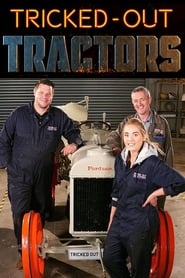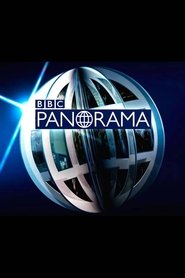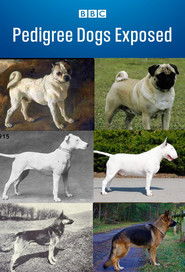Bbc One TV Series - Page 116
-
Coming Down the Mountain
0000
Coming Down the Mountain is a 2007 British television film which was shown on BBC One, written by Mark Haddon and directed by Julie Anne Robinson. The television film was based on a radio play also written by Haddon. -
Open Water
0000
Open Water
0000
Marcus works in retail while trying to develop a career as a photographer. Effie is studying dance at university in Dublin. From the moment they meet, they feel an immediate, undeniable connection. But, as Marcus soon learns, Effie is in a relationship with Marcus' friend Samuel. It's a boundary that Marcus is unwilling to cross. A shared project, photographing and documenting Black creatives in London, draws them into each other's orbit, but can their burgeoning friendship resist the pull of desire? -
Walking With...
2021
Walking With...
2021
Well-known personalities take scenic walks in various locations across England. -
Tricked-Out Tractors
2020
Tricked-Out Tractors
2020
Tricked Out Tractors brings together an unlikely trio of petrol heads to tackle mechanical mess-ups and major makeovers on some of the country's most prized and admired tractors -
The Bomb Squad
2011
The Bomb Squad
2011
Documentary providing a unique look at the work of specialist bomb disposal teams in Afghanistan. -
Secret Fortune
2011
Secret Fortune
2011
Secret Fortune is a BBC National Lottery game show that is broadcast on BBC One. It ran from 12 February 2011 to 29 December 2012 and is hosted by Nick Knowles. -
The Secrets of Scientology
2010
The Secrets of Scientology is a documentary which was broadcast on 28 September 2010 as part of the BBC's Panorama documentary strand. Presented by John Sweeney it is a follow-up of his 2007 investigation into the Church of Scientology and features interviews with former high-ranking members of the organisation. -
High Street Dreams
2010
High Street Dreams
2010
High Street Dreams is a BBC television documentary series first aired in 2010 based around the development of products to sell in High Street shops and Supermarkets. -
Late Kick Off
2010
Late Kick Off
2010
Late Kick Off is a BBC One regional television football programme which was launched on 18 January 2010, and is shown on Sunday nights during the second half of each season. The first two series however, were shown on a Monday night. The programme covers Football League teams on a regional or pan-regional basis in a magazine-style format, in a similar vein to ITV's Soccer Night, and complement The Football League Show on Saturday nights throughout the season. The programme is produced in three regions by local independent production companies. -
Runaway
0000
Runaway
0000
Runaway is the story of a young boy who takes to the streets to get away from the torment he suffers at school and daily problems at home. Life at home is rife with daily doses of scoldings from his half-drunk mother, and his two younger brothers Dean and Jack pay him scant attention until noticing he is missing. On his journey, Sean meets a girl named Molly who takes him to a crumbling mill where her family lives. The series follows the police search for Sean, and how his disappearance affects his family. Runaways was part of a short season on CBBC about children and homelessness, along with a 5-part documentary "Sofa Surfers". The program was first shown as three separated half-hour episodes in March 2009, and later as an 82-minute film. -
Beat the Teacher
0000
Beat the Teacher
0000
Beat the Teacher was a British game show devised by Clive Doig, made by BBC Television and shown as part of Children's BBC on weekdays at teatimes. -
BBC-3
0000
BBC-3
0000
BBC-3 was a BBC television programme, devised and produced by Ned Sherrin and hosted by Robert Robinson, which aired for twenty-four hour-long editions during the winter of 1965-1966. It was the third in a line of weekend satire-and-chat shows, successor to That Was The Week That Was and Not So Much a Programme, More a Way of Life, though David Frost did not participate in this series. Regular performers included John Bird, Lynda Baron, David Batley, Roy Dotrice, Bill Oddie, and Leonard Rossiter. Gusts included Millicent Martin and Alan Bennett. The musical director was Dave Lee. -
Just for Laughs
2003
Just for Laughs
2003
Just for Laughs is a British hidden camera comedy show which was broadcast on Saturday nights on BBC One. It was produced by Wild Rover Productions with Philip Morrow as producer. It started airing in 2003 and ran for five seasons, going off air in 2007. During its run, it was the only Saturday night entertainment show currently on BBC One to be produced by an independent television company based outside London. Just for Laughs was filmed primarily in and around Belfast, Northern Ireland, Glasgow, Scotland and Leeds, England. The Belfast Botanic Gardens were a common filming location for doing some pranks. Just for Laughs has a Canadian sister version called Just For Laughs Gags, and the format of the two is identical. Some of the clips for Just for Laughs are taken directly from Just for Laughs Gags, and vice versa. -
The Brain Hospital
2006
The Brain Hospital
2006
-
The Real Swiss Family Robinson
2009
The Real Swiss Family Robinson is a four-part BBC television miniseries in which different families leave their regular lives behind and sample life on a desert island. -
Come and Have a Go If You Think You're Smart Enough
0000
Come and Have a Go If You Think You're Smart Enough, also known as The National Lottery: Come and Have a Go If You Think You're Smart Enough for series 2, is a BBC National Lottery game show the was broadcast on BBC One from 3 April 2004 to 25 June 2005. The programme was originally hosted by Nicky Campbell for the first series then Julian Clary took over to host the show for the second series. The rights to the programme are being contested in the High Court in London by Robin George le Strange Meakin who claims the BBC, Martin Scott, Celador Productions, Paul Smith and co-producers Tailor Made Films Limited misused his confidential information and have infringed copyright in certain of his own works. A claim for £20m has been lodged. The allegations are denied. -
The Imaginatively Titled Punt and Dennis Show
1994
Sketch-based comedy from the other half of the 1990s Mary Whitehouse Experience team. Includes spontaneous stand up routines, a sitcom set in a fast food restaurant and a continuing serial about the world's worst assassin. -
The Empty Housing Scandal
2019
Despite Britain being deep in a multi-faceted housing crisis over 200,000 properties stand empty. Matt Allwright travels around England to tell the stories of some of them and of plans to bring them back into use. -
Pedigree Dogs Exposed
0000
A shocking expose of one of the greatest animal welfare scandals of our time Two years in the making, Pedigree Dogs Exposed lifts the lid on the extent of health and welfare problems in pedigree dogs, caused by decades of inbreeding and breeding primarily for "beauty" rather than health and function. Supported by strong testimony from top experts, the film argues that, without radical reform, many of our best-loved breeds face extinction.





